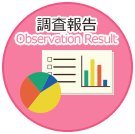Fiscal Year
2015
Title
Dynamics of coastal demersal fishes and evaluation of viability of populations
Project and Theme
Project 1. Study on ecological succession of fisheries ground
Representative Organization: Tohoku University
Theme2. Ecosystems and genetic researches to conserve and restore the coastal fisheries areas in Miyagi Prefecture| Representative person | Yukio Agatsuma |
|---|
| Organization | Tohoku University |
|---|
| Department | Graduate School of Agricultural Science |
|---|
Research InformationPeriod and Interval2015/04/01 - 2016/03/31
Research Area
Tohoku, Sea of Japan, Okhotsk
CategoryOthers
OverviewCoastal marine organisms have been influenced by global climatic changes irrespective of the effect of earthquake and tsunami. To evaluate the effects of 2011.3.11 earthquake on marine organisms, we need examine the distribution and population changes from several decade ago. In this study, we evaluate the effects of both global climate changes and earthquake by analyzing the population changes using Bottom-trawl survey data. In addition, focusing on Gadus macrocephalus, we developed genome-wide SNP markers and detect the markers relating to environmental adaptation, and using these SNP makers, we develop the method evaluating population viability responding to the environmental changes.
Method
We used captured data from 1993 to 2012 for 7 demersal species, and obtained environmental variable (surface and bottom water temperature, salinity, current) for JCOPE. Then, we estimate the CPUE dynamics of these fishes. In this year, we analyze these data by using Convergent Cross Mapping method. We conducted RAD-seq analysis for 234 individuals form 19 population around the coast of Japan. We obtained 12942 SNP markers. We try to detect SNP markers related to environmental variables such as sea water temperature. In addition, we examined the relationships between hemoglobin polymorphism and water temperature.
Overview of the Observation
Results and Future Plan1. We sequenced the genome of two close species, Pacific cod, G. macrocephalus and Walleye pollock, T. chalcogramma at 37.2x and 40.4x coverage, Pacific cod and walleye pollock, respectively. The diploid genomes were subjected to pairwise sequentially Markovian coalescent (PSMC) analysis for inferring dynamics of effective population sizes by using the information from distribution of heterozygote sites throughout the genome. This study suggests that, even though the two species share habitat and experienced similar climatic change.
2. We investigated population genetic structure and searched for loci that have been subject to divergent selection in walleye Pollock, T. chalcogramma using single nucleotide polymorphism (SNP) loci associated with inter simple sequence repeat regions, along latitudinal gradient from Bering Sea to Japans' ocean. Overall, population genetic structure differed between local populations of Bering Sea and Japan, indicating gene flow restrictions between these spatial areas. These two areas differed in hydrography such as sea temperature and salinity. Genome scan analysis identified three common outliers SNP loci that were robustly detected by multiple detection approaches with very high statistical support.
3. We analyzed population structure of Pacific cod using genome-wide SNP markers via RAD-seq using NGS in 234 individuals from 19 locations across Japanese coastal area. SNP markers showed two distinct populations separating at the southern part of Sea of Japan, which is supported by our previous study using ordinary nuclear markers. Fine scale population structure with the respect to water bodies was also observed with large amount of SNPs. We also identified several loci that are under diversifying selection. Identifying populations that are locally adapted will be useful information to maintain sustainable resources.
Reference
Person in charge of Investigation
| Representative person | Masakado Kawata |
|---|
| Organization | Tohoku University |
|---|
| Department | Graduate School of Life Sciences |
|---|
| Fiscal Year | 2015 |
|---|
| Organization | Tohoku University |
|---|
| Category | Others |
|---|
| Discipline | Ocean biology / Ocean ecology -> Fishes
|
|---|
